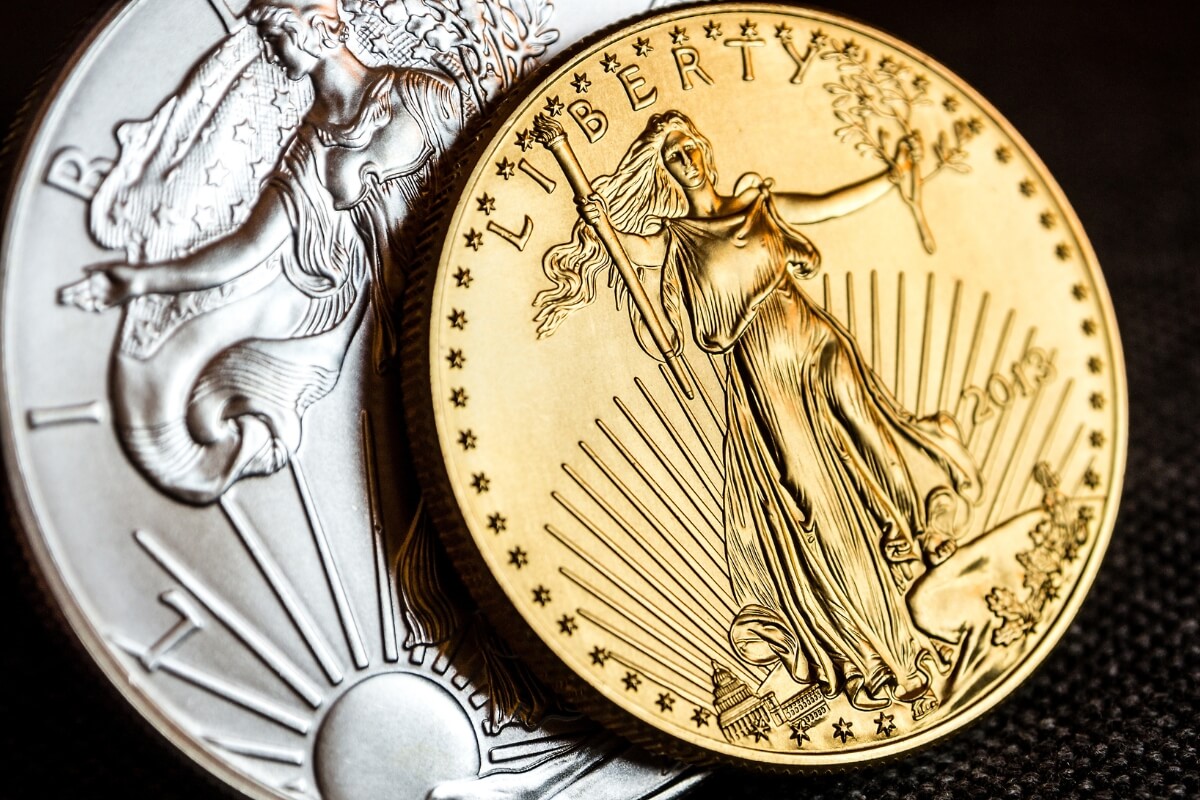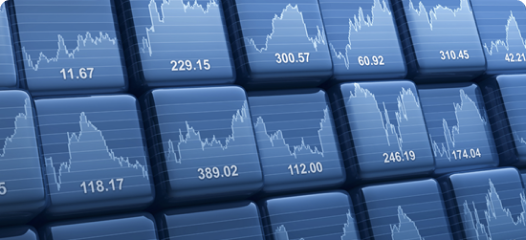Silver Spot Price
Wednesday, February 25, 2026 at 9:32 AM EST Refresh page to update.
Our Precious Metals Insider Latest News

Florida Gold & Silver Legal Tender Law: Tax-Free in 2026
Florida recognizes gold & silver as legal tender starting July 20...
Buyers Guides

Beginner's Guide to Investing in Precious Metals
Allocating some of your investment dollars to precious metals is a wise decision. But doing your due diligence before you make a purchase is even wiser.
Silver Spot Price FAQ
What is the spot price of silver?
This is the constantly changing price at which silver is traded on the global markets.
Spot silver prices represent the value of a unit of raw silver for immediate delivery. Unlike futures prices, it is the live silver price today in real time.
Spot prices are used by financial institutions, silver retailers, and investors to buy and sell silver bullion. They help calculate the price at which various silver products are bought and sold. This includes physical products (bars, coins, or bullion) or financial instruments (ETF shares).
How is the spot price of silver calculated?
Trading on the silver futures markets has the largest effect on the current spot price of silver.
The total level of supply and demand for silver at any given moment determines the price. Prices take into account all market conditions that can affect supply and demand.
You can learn more about silver futures contracts by following this link.
How often do silver spot prices change?
The spot silver price is always fluctuating because it is being updated on a constant basis.
What can cause the spot price of silver to change?
Many variables can affect the current spot price of silver. Some examples are:
- developments in the financial and commodity markets
- new discoveries of silver
- changes in taste for silver jewelry
- geopolitical events or economic events.
During the financial crisis of 2008, many people decided to invest their money in silver and gold. The intent was to protect their wealth from the possibility of inflation. This is known as safe haven demand. The result was that the spot price of silver increased dramatically in a very short period of time.
Another example would be the discovery of a new deposit of silver ore. A large deposit will affect the price of silver by increasing the supply of the metal.
What currency is the spot price of silver denominated in?
Silver today is denominated in U.S. dollars (USD), as are all commodities traded globally. Since the USD is the world’s reserve currency, most countries use it for foreign trade with other nations.
You can always use forex rates to convert the silver price into another currency.
What amount of silver does the spot price refer to?
The spot price of silver reflects the current value for one troy ounce of .999 fine silver. All precious metals spot prices are based on a one troy ounce unit, which is equal to 31.1 grams.
Historic silver prices and spot price charts use the troy oz standard.
Is the spot price of silver universal?
Yes, the spot price of silver is the same whether you’re in Hong Kong or New York. Factors within the global economy affect the 24-hour silver price (and the live gold price). Thus, prices are generally the same across the globe.
Why can’t I buy silver at the spot price?
The spot price is the lowest price at which mints and dealers can obtain physical silver. It is the base price at which raw silver bullion is traded.
Dealers and mints operate on very small profit margins. It is necessary to add a premium, or markup, to cover the operating expenses of doing business.
Does the spot price include markups or shipping costs?
No, the spot price of silver is the price for raw unprocessed silver in the commodities markets. It does not include the labor and production costs of turning silver into coins, bars, or rounds. It also does not include the cost of shipping silver after it has been processed.
Why are some silver products priced so much higher than others?
Some people buy silver products, such as coins, bars, and rounds, as collectible items. Others buy them as financial instruments. Sometimes both of these motivations apply to one’s silver holdings.
Investors will usually buy silver bullion priced as close to the spot price as possible. This maximizes the amount of silver they receive per dollar.
Yet many people purchase collectible silver items instead. These products come with a substantial collectible premium over the spot price. Items such as old numismatic coins and graded coins fall under this category.
Silver bullion products with enhanced security features to prevent counterfeiting may cost more. This applies to Canadian Silver Maple Leaf coins.
How are the premiums over spot calculated? Are they the same for all silver products?
No. Generally speaking, there are three main categories of pricing for physical silver bullion:
- low premium (includes generic silver bars and rounds)
- standard premium (includes name brand bars and standard issue bullion coins)
- numismatic premium (includes graded coins, semi-numismatic bullion coins, and antique circulation coins)
The premium for a numismatic coin may be much higher than the intrinsic value of its silver weight.
Precious metals investing involves choosing between these pricing tiers. It depends on what is important to you. You might buy silver bars for the low premium over spot, for instance.
What are bid and ask prices?
The ask price refers to the lowest price at which a dealer is willing to sell a troy ounce of silver. The bid price is the lowest price that a dealer is offering to pay for a troy ounce of silver.
The difference between the bid and ask price is known as the dealer spread.
What are silver futures contracts?
These are agreements between buyers and sellers on the precious metals market. They agree to exchange an exact amount of silver at a specific price at a set date in the future.
Futures prices reflect expectations about what the price of silver will be in the future. Thus, futures trading has a significant effect on silver prices today.
What is the NYMEX?
NYMEX stands for the New York Mercantile Exchange. It is the main exchange where futures contracts for various commodities are traded. It was purchased by the Chicago Mercantile Exchange (CME) Group in 2008.
What is the COMEX?
This is the Commodity Exchange division of the NYMEX. It was once a separate exchange but it merged with NYMEX in 1994. COMEX is now operated under the CME Group, as well.
Silver futures contracts are traded on the COMEX.
What is the LBMA?
LBMA means the London Bullion Market Association. It is a group of banks, bullion dealers, and refiners. They trade in the largest over-the-counter market in the precious metals industry.
Over 200 million troy ounces of silver trades in the London bullion market each day on average.
The LBMA only accepts Good Delivery silver bullion bars. These must have a weight between 750 oz and 1,100 oz (23 kilograms to 34 kilograms).
What is paper silver?
Paper silver refers to shares of electronically traded funds (ETFs) backed by silver. Sometimes "paper silver" also means silver futures.
Investors almost never take possession of actual silver with shares of ETFs. Instead, they are issued a certificate which states the value of the shareholder’s stake on paper. The same is essentially true of silver futures contracts.
Taking physical delivery of shares in a silver ETF incurs fees and additional costs. Hence most investors rollover these contracts or sell them without taking physical delivery.
Do mining companies have any effect on the price of silver?
Not directly. Mining companies have large overhead costs. So if the price of silver falls too low, they may elect to scale back production rather than taking a loss.
All things being equal, if the supply of silver falls then the price of silver will increase, and vice versa.
Is silver traded 24 hours a day?
Yes. The silver market is global, so there are always trades being made on exchanges around the world. Some of the biggest exchanges are in London, New York, Tokyo, Hong Kong, and Sydney. This means that fluctuations in the spot price of silver occur on a 24-hour basis.
Is physical silver taxed?
You are usually subject to state and local sales taxes when you buy physical silver. In some U.S. states, sales tax on silver bullion is exempt when you spend over $1,000.
Legal tender silver coins are not taxable in the United States. That includes the 1 oz Silver American Eagle.
International purchases are subject to any import duties and value added taxes (VAT).
What is the gold/silver ratio?
This is simply the ratio between the gold price and silver price. It is a reference point to compare historical silver prices to prices today. The ratio may suggest silver or gold is undervalued relative to the other.
Why are there separate prices for bank wire and credit card transactions?
Credit card payments involve merchant fees and higher transaction costs. Bank wires do not.
Dealers must cover these extra costs when customers pay by credit card. Thus we offer a discount for "cash equivalent" payment methods such as bank wires.
If the live silver spot price increases just before I make my purchase, am I going to be charged a higher amount?
Yes. The price per troy ounce fluctuates until you have locked in the latest spot price by placing your order. Remember that the daily silver price is dynamic, changing throughout the trading day.
Does the monetary denomination of a silver coin affect its overall value?
If you spend a silver coin as legal tender, its denomination directly affects its value. This is the exact amount the coin is worth as currency for commercial transactions. It is also known as the face value.
On the other hand, the denomination has no bearing on the coin’s market value. It doesn't affect the melt value of the underlying metal. The face value has no impact on a coin's appeal as a collectible.
Is it better to buy silver online?
There are certain advantages to buying silver online compared to in-person sales. Shopping online gives you greater selection and greater convenience. It allows you to shop from the comfort of your home or while on the go.
Online shopping lets you make purchases even when brick-and-mortar shops are closed. You have the flexibility to lock in prices for your order at any given time.
Most importantly, online sellers avoid the overhead costs associated with traditional retailers. They are typically able to offer lower prices as a result.
